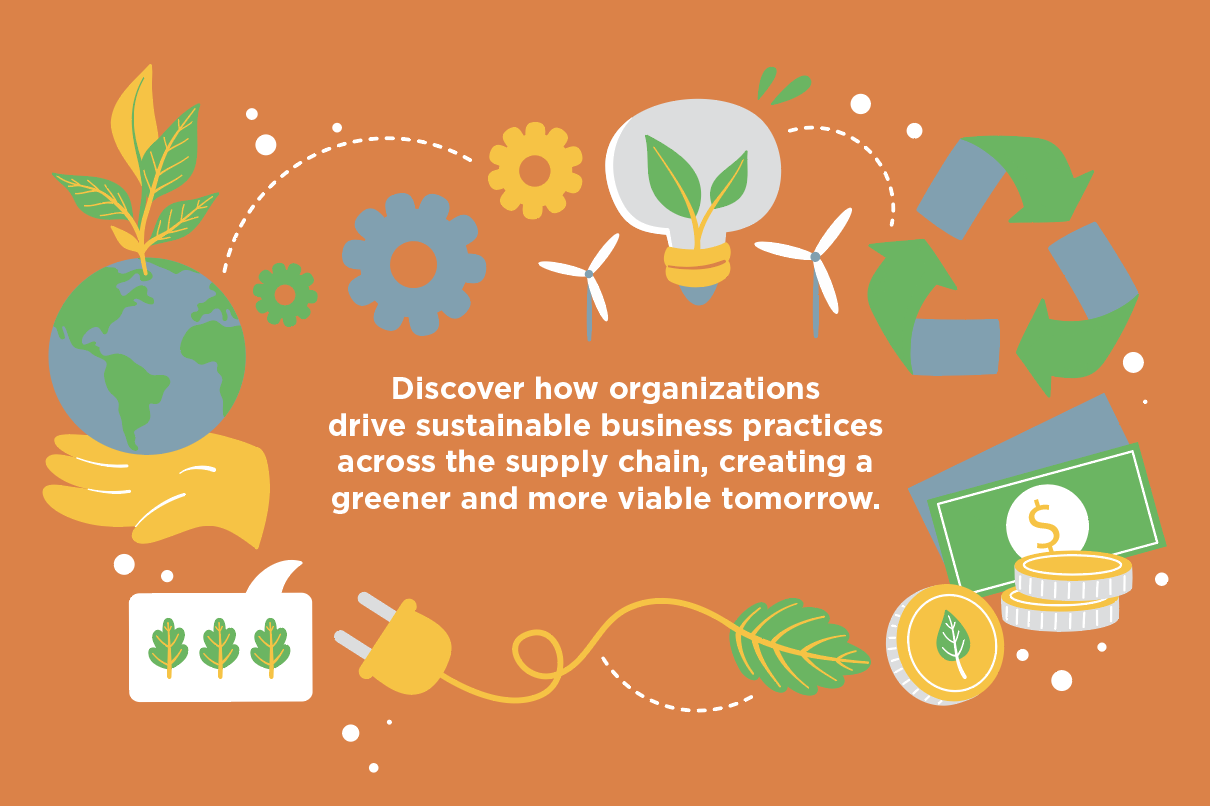Environmental, social, and governance (ESG) concerns have taken center stage for companies and consumers. And today, the role of supply chains in driving sustainable practices has become an increasingly important part of the equation. From sourcing eco-friendly materials to optimizing transportation practices, teams hope to transform the supply chain landscape. As businesses consider their role in shaping a more environmentally conscious future, we will begin by exploring the strategies adopted by supply chain organizations to establish more sustainable logistics operations.
The state of sustainability in the supply chain
Sustainability has become a primary concern for businesses dealing in the supply chain — and virtually every company. This issue has become more than just a moral and ethical imperative for organizations; consumers demand more comprehensive information to evaluate the products they buy. These assessments include the materials used, operational conditions, energy consumption, and carbon footprint in production.
When creating a more sustainable supply chain, Wolters Kluwer reports that 49% of all companies have established sustainability goals. Yet, despite these long-term plans from executives, few teams have the visibility, technology, or programs to reach objectives or measure progress. In fact:
- Organizations can face resistance to change from stakeholders, impeding the adoption of more sustainable practices.
- Supply chain networks are becoming increasingly complex, challenging consistent standards.
- It can be hard to access sustainable resources that are also affordable.
- Inconsistent regulations and policies are creating compliance challenges.
- Financial constraints can make it difficult to allocate funds for sustainability initiatives.
A holistic approach
Sustainable supply chain management involves more than simply addressing environmental concerns: it also requires considering social responsibility, ethical sourcing, supply chain transparency, and waste management. Here are some of the strategies supply chain organizations are introducing to build a more resilient and sustainable future:
- Promote ethical sourcing and fair labor practices
Teams can boost sustainability efforts by introducing more ethical sourcing practices, like fair trade and responsible procurement. These practices often involve working closely with suppliers to ensure adherence to social and labor standards — supporting fair wages, employee rights, and safe working conditions across the supply chain. - Optimize transportation and logistics
It is easy for organizations to overlook the crucial role transportation and logistics play in building a more responsible supply chain. Fortunately, several strategies exist to reduce carbon emissions and overall costs, such as route optimization, shipment consolidation, and shifting to greener transportation modes like sea or rail. And, with the introduction of advanced technologies like GPS tracking and real-time data and analytics, it is easy to augment and enhance efficiencies even further. - Enhance supply chain transparency
Organizations are turning to traceability systems and sharing information about suppliers, materials, and production processes to boost transparency. This emphasis on collaboration provides consumers with the data they need to make informed decisions, which is becoming increasingly important. Research reveals 94% of consumers are more likely to be loyal to companies that offer complete production and distribution transparency. - Implement waste reduction and circular economy principles
Supply chain teams are introducing waste reduction strategies — including recycling, repurposing, regenerating, and product lifecycle management — to enhance long-term sustainability. Products designed for durability, repairability, and recyclability during production will empower circular economic systems. - Embrace renewable energy sources
There is a unique opportunity to considerably reduce carbon emissions and environmental impact in warehouse operations and transportation by transitioning to renewable energy sources like solar or wind power. Investing in this infrastructure and working with like-minded partners can go a long way toward promoting sustainability.
The value of prioritizing organizational sustainability
As ESG and sustainability continue to be the focus of organizations across the value chain, teams can see several benefits, including:
- Cost savings: Reducing energy consumption, optimizing transportation, and streamlining operations to promote sustainability leads to significant cost savings.
- Enhanced company reputation: As consumer demand for sustainable products and supply chain transparency increases, demonstrating a commitment to corporate special responsibility (CSR) can improve reputation and attract environmentally conscious partners and consumers.
- Regulatory compliance and risk mitigation: Proactively addressing environmental and social issues can safeguard an organization from non-compliance penalties and legal liabilities.
- Supply chain resilience and flexibility: By diversifying suppliers, reducing dependence on single-source materials, and strengthening supplier relationships, teams empower not only their CSR but resilience in the face of disruptions or bottlenecks.
- Accessing top talent: Prioritizing sustainability is an effective strategy to attract and retain top talent who value environmental and social responsibility.
- Unlocking new markets and partners: As the shift toward more responsible practices becomes a key criterion for choosing suppliers, introducing sustainable strategies can unlock potential business opportunities.
Implementing advanced digital solutions to empower your sustainability efforts
The moral imperative of improving ESG and sustainability efforts, coupled with global calls from consumers for more responsible systems, means that ignoring your environmental and social obligations is no longer an option. To address these issues effectively, supply chain teams can turn to comprehensive digital solutions that enable initiatives for change.
Create eco-friendly products, source sustainable materials, and optimize product manufacture and transport with help from Oracle Cloud applications — all while reducing costs and delivering increased service. Oracle tools — implemented by empowered by Inspirage — support more informed decision-making, streamlined processes, and proactive responses to sustainability concerns for both a competitive edge and a greener future. Download our new eBook Sustainable Progress: Global Stewardship in a Digital World to learn more.
